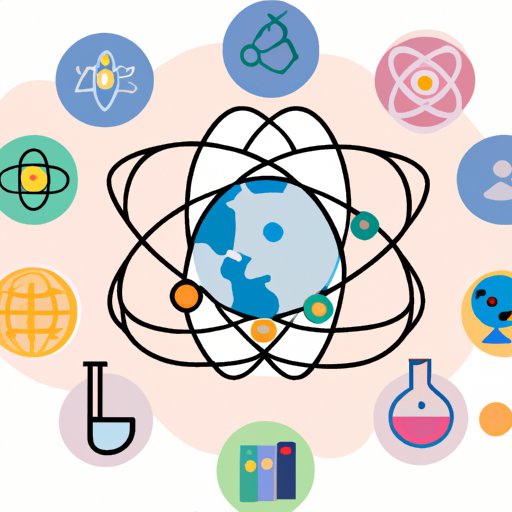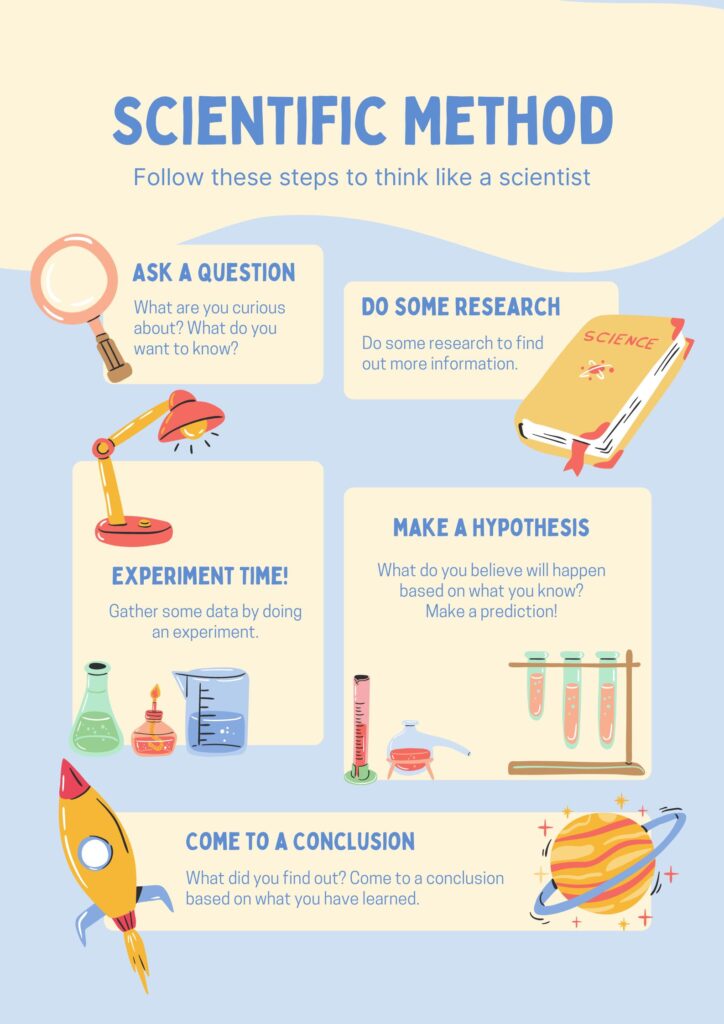Science is the systematic pursuit of knowledge about the natural world, grounded in observation, experimentation, and evidence-based reasoning. In the contemporary world, science plays a critical role in shaping everything around us—from the technology we use to how we understand our health and the environment. It is through scientific exploration that we’ve made astonishing progress in medicine, communication, and countless other areas that impact our daily lives.

The Role of Science in Modern Society
Science is at the core of technological innovation, problem-solving, and improving the quality of life worldwide. Let’s break down the various roles science plays in modern society and why it is indispensable.
How Science Drives Technological Innovation
Science and technology go hand in hand. Technological innovations that we take for granted today, such as smartphones, medical devices, and renewable energy systems, are products of years of scientific research. Without science, these technologies would simply not exist.
Some notable examples include:
- The Internet: Born out of military and academic research, the internet has transformed how we communicate, work, and learn globally.
- Renewable Energy: Science has been crucial in the development of solar panels, wind turbines, and battery storage systems that reduce reliance on fossil fuels and help combat climate change.
In essence, science fuels the growth of industries that create jobs, improve economies, and raise the standard of living globally. It is through scientific research that companies are able to innovate, bring new products to market, and solve real-world problems.
Why Scientific Thinking Promotes Problem-Solving
Scientific thinking is not just confined to laboratories or universities; it’s a problem-solving tool applicable in every area of life. At its core, the scientific method encourages:
- Critical thinking: Evaluating information from various perspectives and testing ideas before reaching conclusions.
- Evidence-based decision-making: Using reliable data and experiments to make decisions.
- Systematic exploration: Approaching problems with a structured plan, allowing for replication and refinement.
For instance, the scientific method has been used to develop solutions to some of the biggest global challenges like:
- Climate change: Through understanding atmospheric science, we’ve been able to develop strategies to mitigate greenhouse gas emissions.
- Disease eradication: Using scientific thinking, diseases like polio have been nearly eliminated through vaccination campaigns.
By applying these scientific principles in everyday life, society can develop smarter policies, more sustainable practices, and faster technological breakthroughs.

Science and Its Impact on Healthcare
One of the most significant areas where science has revolutionized the contemporary world is healthcare. From the development of life-saving treatments to preventative care, science is at the forefront of improving human health and increasing life expectancy. Let’s explore the profound impact science has had on healthcare.
How Science Advances Medical Research and Treatment
The field of medicine is perhaps the most visible area where scientific discoveries have direct and immediate impacts on our daily lives. The following innovations, made possible through scientific research, have transformed healthcare:
- Vaccines: Diseases like smallpox and polio, which once devastated populations, have been nearly eradicated thanks to vaccines. Most recently, COVID-19 vaccines were developed in record time, largely due to decades of scientific research on viruses and the immune system.
- Genetic Engineering and Personalized Medicine: Advancements in genetic science allow doctors to treat diseases based on a person’s unique genetic makeup. This approach leads to more effective treatments, particularly for conditions like cancer, where targeted therapies are becoming more common.
- Medical Devices and Diagnostics: Science has led to innovations such as MRI machines, CT scanners, and even wearable technology like smartwatches that can monitor vital signs. These devices provide doctors with accurate, real-time data to make informed decisions about a patient’s health.
Medical advancements in areas like organ transplants, fertility treatments, and drug development are all built on scientific discoveries and continued research.
Why Science is Critical to Global Pandemics and Health Crises
The COVID-19 pandemic is a prime example of why science is crucial in addressing global health crises. It highlighted the importance of scientific preparedness, research, and collaboration across the world. Some key ways science played an essential role include:
- Development of vaccines: The COVID-19 vaccines were developed at unprecedented speeds, thanks to mRNA technology, a field of research that had been studied for years before the pandemic. This technology allowed scientists to quickly adapt it to fight the virus.
- Epidemiology and Data Science: During the pandemic, scientific models helped predict the spread of the virus, informing public health policies like lockdowns and social distancing. These models, grounded in data and scientific analysis, provided governments with the tools to manage and mitigate outbreaks.
- Global Collaboration: Scientists from different countries worked together to share data, clinical trials, and research results. This level of international collaboration underscores how science can unite the world in the face of global challenges.
In summary, science is the cornerstone of medical innovation and crisis response, ensuring that the healthcare system evolves to meet new threats while providing better care and extending life expectancy for millions around the globe.

Science as a Driver of Economic Growth
Science doesn’t just play a role in healthcare and technology—it is a key driver of economic growth and innovation. The discoveries and advancements made through scientific research form the backbone of industries, fuel job creation, and promote economic stability. Let’s explore how science contributes to the global economy and why it is critical to sustainable growth.
How Science Contributes to Innovation and Industry
Many industries owe their success and growth to scientific advancements. From biotechnology to artificial intelligence (AI), the application of scientific research drives the development of new industries and economic sectors. Some notable areas where science has spurred innovation include:
- Biotechnology and Pharmaceuticals: The pharmaceutical industry, worth hundreds of billions globally, relies heavily on scientific research to discover and produce new drugs and therapies. Biotechnology startups and research institutions continuously explore new treatments, leading to breakthroughs that save lives and generate significant economic value.
- Information Technology and AI: Advances in computer science and AI have given rise to companies like Google, Microsoft, and Amazon, which dominate the global economy. These industries are directly linked to decades of scientific research in computing, algorithms, and machine learning. The digital economy, which includes e-commerce and online services, has experienced massive growth thanks to these innovations.
- Energy Sector: Science has transformed the energy industry, especially with the rise of renewable energy technologies like solar power, wind turbines, and battery storage systems. These advancements not only help combat climate change but also create new economic opportunities through the development of green energy jobs.
The Importance of Science in Sustainability and Environmental Solutions
In the modern world, sustainable practices are becoming more important, and science plays a pivotal role in developing solutions that are both economically viable and environmentally friendly. Scientific advancements help address pressing issues such as climate change, resource depletion, and pollution. Here’s how:
- Renewable Energy: Science is at the forefront of developing technologies that reduce our dependence on fossil fuels. For instance, photovoltaic cells for solar energy and advanced battery technologies are becoming more efficient and affordable due to ongoing scientific research.
- Climate Science: Scientists study climate systems to understand and predict the impacts of human activity on the environment. This research informs climate policies, enabling governments and industries to take action to reduce greenhouse gas emissions, mitigate rising temperatures, and protect ecosystems.
- Waste Reduction and Recycling Innovations: Science is also behind advancements in recycling technologies and the development of biodegradable materials that reduce waste. Companies are increasingly adopting science-backed sustainability measures to minimize their environmental footprint while remaining profitable.
In addition to its role in industrial innovation, science also helps guide economic policies by providing insights into resource management, agricultural development, and global trade. By leveraging scientific knowledge, economies can grow sustainably, ensuring that future generations have access to both natural resources and economic opportunities.
Science and Education: Shaping Future Generations
Education is the foundation of a prosperous society, and science education is crucial for shaping how we understand the world. Scientific literacy is more important than ever in the contemporary world, as it prepares individuals to navigate an increasingly complex and technologically-driven environment.
Why Science Education is Essential in Today’s World
In today’s fast-paced, technology-driven society, being scientifically literate is no longer a luxury; it’s a necessity. Science education teaches individuals how the world works, from the smallest particles in physics to the largest systems like the Earth’s climate. The knowledge gained from science education applies to many aspects of daily life and equips individuals with the skills needed to face real-world challenges.
Some key reasons why science education is critical in the modern world include:
- Informed Decision-Making: Understanding science enables people to make informed choices about their health, finances, and environment. Whether it’s deciding on a healthcare treatment or evaluating the benefits of renewable energy, a basic understanding of science helps people make decisions based on evidence, not misinformation.
- Career Preparation: Many of the fastest-growing job sectors—such as healthcare, engineering, and information technology—are science-based fields. Educating students in science prepares them for these careers and ensures they have the skills needed to thrive in the global economy.
- Technological Competence: In a world where technology plays an integral role, science education provides the knowledge necessary to understand and use technology effectively. This understanding is essential not just for individuals working in tech but for everyone who interacts with digital tools in their daily lives.
Science education is also crucial for cultivating problem-solvers who will be the future leaders, innovators, and policymakers. With scientific literacy, individuals are better prepared to address the challenges of the 21st century, such as climate change, public health crises, and resource scarcity.
Science and Critical Thinking Skills
One of the most valuable aspects of science education is the development of critical thinking skills. The scientific method teaches students to:
- Ask questions and be curious about the world around them.
- Collect and analyze data to make well-supported conclusions.
- Challenge assumptions and evaluate evidence critically.
- Solve complex problems through a structured, step-by-step approach.
These skills are not only applicable to scientific pursuits but also to everyday life. For example, critical thinking is essential when evaluating news sources, forming opinions on social or political issues, or making important life decisions. Scientific thinking encourages skepticism, ensuring that individuals rely on facts and evidence rather than opinions or emotions when making decisions.
The benefits of science education extend beyond the classroom. As students learn to think like scientists, they become more engaged citizens who can contribute positively to society by making informed decisions, debating issues based on facts, and finding innovative solutions to global challenges.